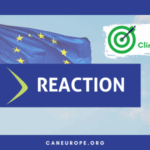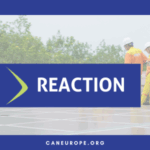The success of the ETS revision hinges on its ability to make the polluter pay, rather than paying the polluter. Handing out free pollution permits contradicts the EU Treaty principle that polluters should pay.
Since the year 2013, power companies buy all of their emission allowances at auction. However, manufacturing industries that have been deemed at risk of carbon leakage continue to receive up to 100% of their CO2 allowances for free. These generous exemptions in the form of free pollution permits have led to windfall profits for large energy intensive companies on the backs of EU citizens.
What is Carbon Leakage?
Carbon leakage is a term used to describe the hypothetical situation where stringent climate policies would force companies to move their production abroad to countries with less ambitious climate measures to lower their production costs. This can theoretically lead to a rise in global greenhouse gas emissions.
What evidence is there for “carbon leakage”?
There has so far been no compelling evidence that EU’s climate policies are forcing companies to move abroad. A study commissioned by the European Commission concluded in 2013 for example that no conclusive evidence of carbon leakage occurrences can be detected, see here.
Relocation of European industry due to the ETS is also unlikely to happen in the future: A recent academic paper finds that the future impact of more ambitious climate policies on EU companies moving their production abroad is likely to be “extremely limited”. A ten-fold increase in the carbon price would cause exports to fall by only 0.5% and would increase imports by 0.07%, even assuming a complete phase-out of free pollution permits (100% auctioning) see here.
Some industry groups have been arguing that there is a risk of “investment leakage”: new investments going outside of Europe. However, investment decisions are made based on a broad set of factors in globally competing industries, where the EU carbon price signal is a negligible factor. Given the surplus projections this is unlikely to change in the next trading phase. As with carbon leakage, there is no evidence for such investment leakage due to the ETS. The best way to support industries to fully decarbonize and to stay in Europe is to auction more allowances and invest the revenues in the European economy. Free allocation does little to tackle investment leakage as it is uncertain whether the companies invest the resulting profits in Europe, or somewhere else (or just give the profits to their shareholders). Moreover, investment leakage might not even lead to a rise in global greenhouse gas emissions, if the investments are done in more efficient plants than those in Europe. This is by no means just rhetoric, as India and China have particularly efficient cement production for example (more efficient than the European and global average) see: here.
The polluter should pay
Auctioning is the most cost-efficient, simplest, fairest, and most transparent way to allocate allowances, fully reflecting the polluter pays principle. Increasing the share of auctioning can support larger investments in the tools needed for further decarbonisation and climate resilience, in the EU and internationally.
Existing provisions to protect the manufacturing industry in the EU against the potential risk of relocation due to the ETS apply for the period from 2013 to 2020. Currently, more than 150 sectors, representing more than 97% of industrial emissions, are deemed to be at risk of “carbon leakage” and receive free pollution permits. Between 2013 and 2020, in total 6.6 billion allowances will be given out for free to industry with a monetary value of €50 billion (see here, p. 29).
A key question is how the concept of “carbon leakage” will be addressed in the next ETS trading round from 2021-2030. In its ETS revision proposal, the European Commission recommends to continue many of the existing rules, including the hand-out of around 6.3 billion free pollution permits in the post-2020 period. The Commission anticipates that the carbon price will increase from around €8 today to an average €25 in the 2021-2030 period, which would represent an indirect financial subsidy of €160 billion to large polluters (see here, p. 27).
CAN Europe is against such blanketed pollution subsidies and supports a move to 100% auctioning. We are calling for fairer and stricter rules which would ensure that free pollution permits are significantly limited through a tiered and focused system. Free pollution permits should not be given to industries that do not face significant and proven competitiveness risks.



